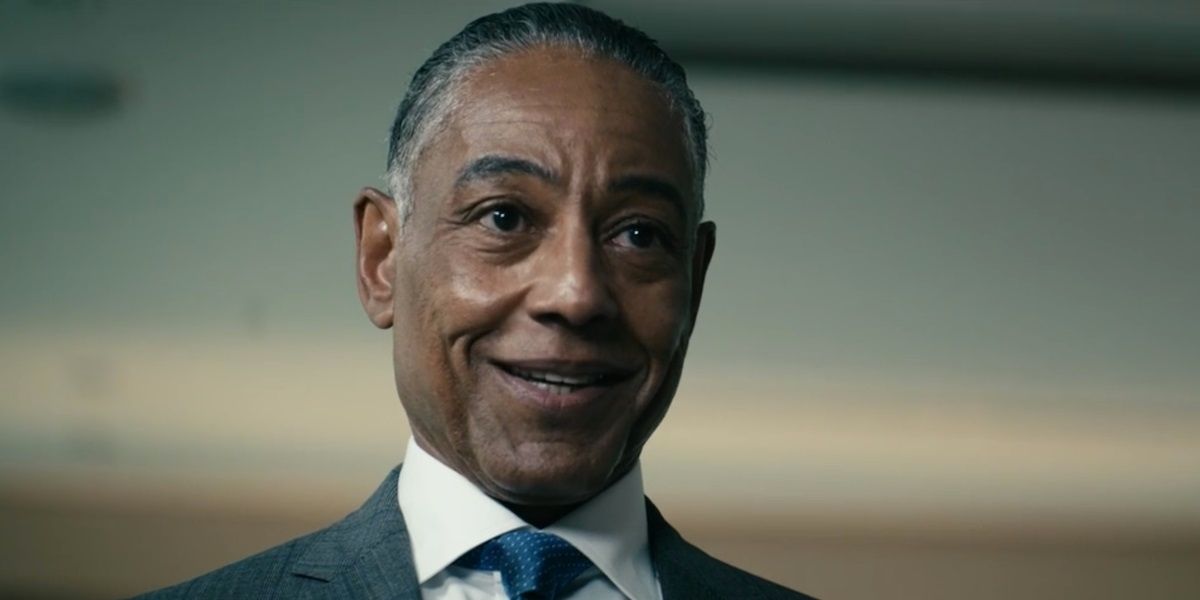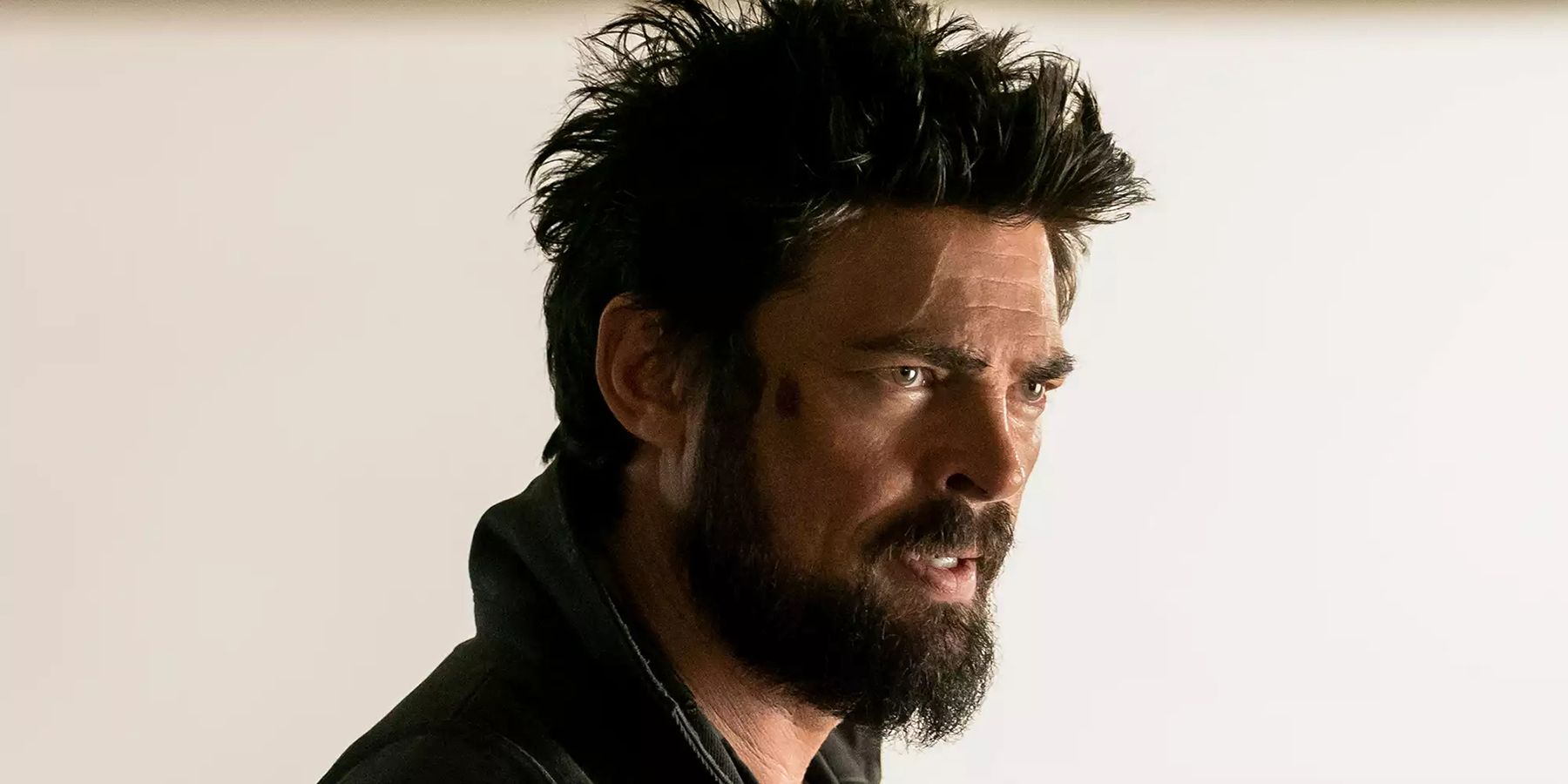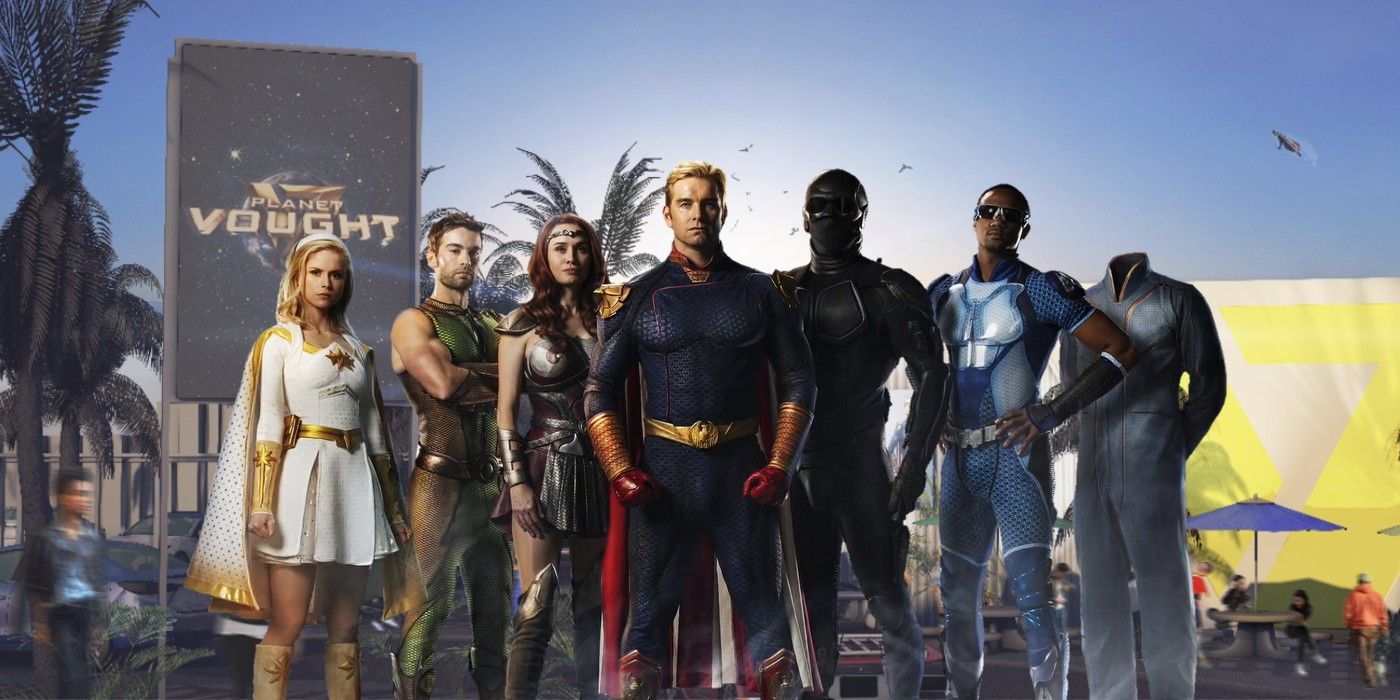Satire is one of the most subjective genres of art it is possible to make. Judging the art of poking fun at a well-known target takes a lot more than getting the joke. Some satirical works are sharp and clever, but others seem to prefer a sledgehammer over a scalpel.
Season three of Eric Kripke's adaptation of Garth Ennis's The Boys is fully underway and the show has continued to mock the world around it. The series has real venom in its targeted attacks against woke marketing, superhero cinema, real-world politics, and much more. Whether its jabs land will vary based on the viewer, but it is unquestionably taking some big swings.
From the earliest moments of the series, The Boys was unflinchingly depicting the worst of corporate America, celebrity culture, and superhero storytelling. One of the first narrative beats sees young up-and-coming hero Starlight pressured into a horrific sexual harassment scenario by supposed hero The Deep. From this early moment, viewers are forced to understand that the show will not be holding back. The first episode also features the tragic fate of Huey's girlfriend Robin, which is still revolting, but handled with a tone of comical ultraviolence that lessens the sting. From two examples in the very first episode, everyone who tuned in is forced to understand the level of social commentary that the show is operating on.
The Boys rarely if ever does anything halfway. When depicting something as unpleasant as sexual assault, it depicts the event, the aftermath, and the response from everyone involved. When depicting violence, it uses enough blood and gore to fill a swimming pool, regardless of how much would be necessary. Social commentary is just one aspect of the show's "everything all the time" ethos, but it is the one that can be the most detrimental to the message.
Working a message into a fictional narrative, especially one as routinely comical as The Boys, can be lethal if handled poorly. The series wants to mock big companies' use of women and LGBT+ people for marketing and Superman's ability to kill people in the same breath, and that risks weakening both. Despite the blatant billboard messaging of the series, fans of the comic likely know that the story could be handled with even less restraint.
The source material of The Boys is less politically minded than its on-screen adaptation, but its take on the issues it does bring up is often less than tasteful. While the Amazon series goes at a relatively sympathetic understanding of real issues with no filter, the comic often takes a more South Park-inspired approach. Nihilism is pretty common in Ennis's version of the story, and like the on-screen version, it refuses to hold back in any aspect. The extremely grim storytelling of the series pales in comparison to the pitch-black narrative and personal stakes of the comic. With this in mind, The Boys handles its storytelling in the only way anyone could logically expect from its pedigree.
The evil businesspeople of the series are depicted with all the moral complexity of Lex Luthor, but their behavior isn't bracing because it's obvious. The evils of Vought may not seem like a nuanced take on corporate America, but it doesn't need to be. The point of the premise is that a borderline god walking around in human skin is so powerful that the idea of defeating them seems comical. The Seven aren't just a metaphorical stand-in for evil corporations, the narrative helpfully provides an evil corporation to stand in for the real-world examples.
Rather than making subtle references to the topics that the series hopes to poke fun at, it forces the ideas in the other direction. The Boys grabs the dial and cranks every concept to absurd extremes and then screams in the audience's face until they get it. This isn't sloppy, it's a deliberate choice. The worst excesses of The Boys' cast of villains stand as a planted flag that demands its audience to pay attention to the all-too-real examples in the world around them.
Subtlety is a tool, to be used when it fits the situation. A satire being loud, angry, and blatant isn't necessarily a weakness. The Boys refuses to use nuance because it both sees and represents the figures it rails against as cartoonishly evil. The lack of subtlety is part of the message in itself because phrasing a joke in the form of a scream is a valid choice. The Boys wants to instill in its audience the kind of awe one feels when they see a perfect movie villain enact their ultimate cruelty and direct it at the real figures who inspire that feeling in them. Audiences may be able to see the satire coming, they may think it's preachy or overkill, but they won't miss the point. The Boys never uses a scalpel where a warhead will do, and that's part of the appeal.



